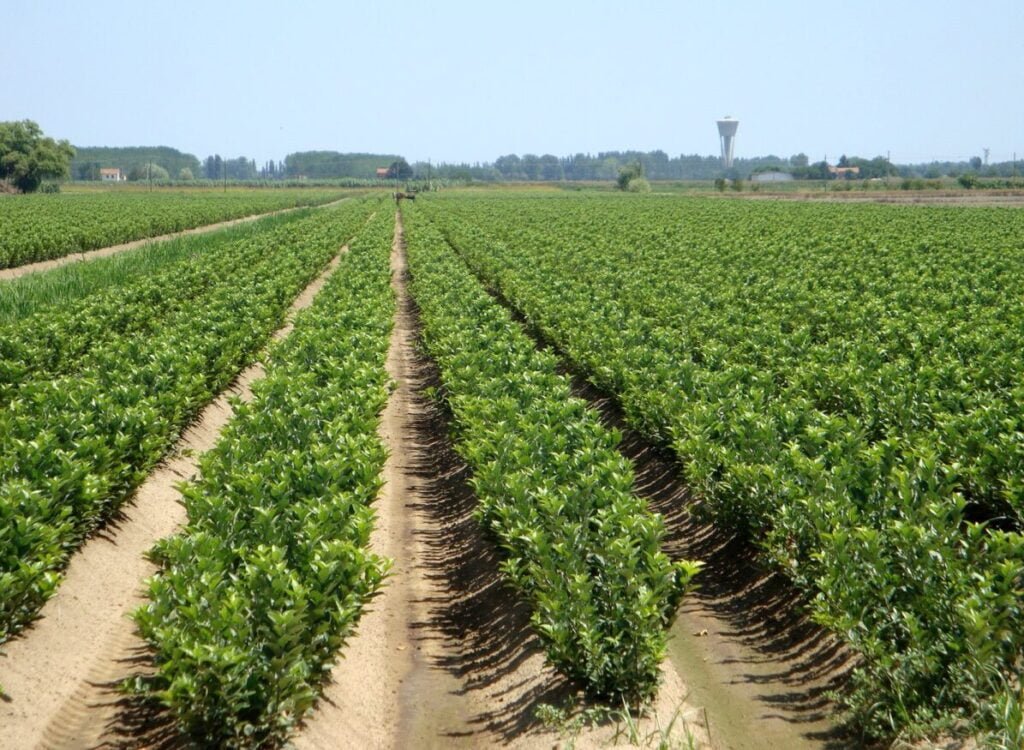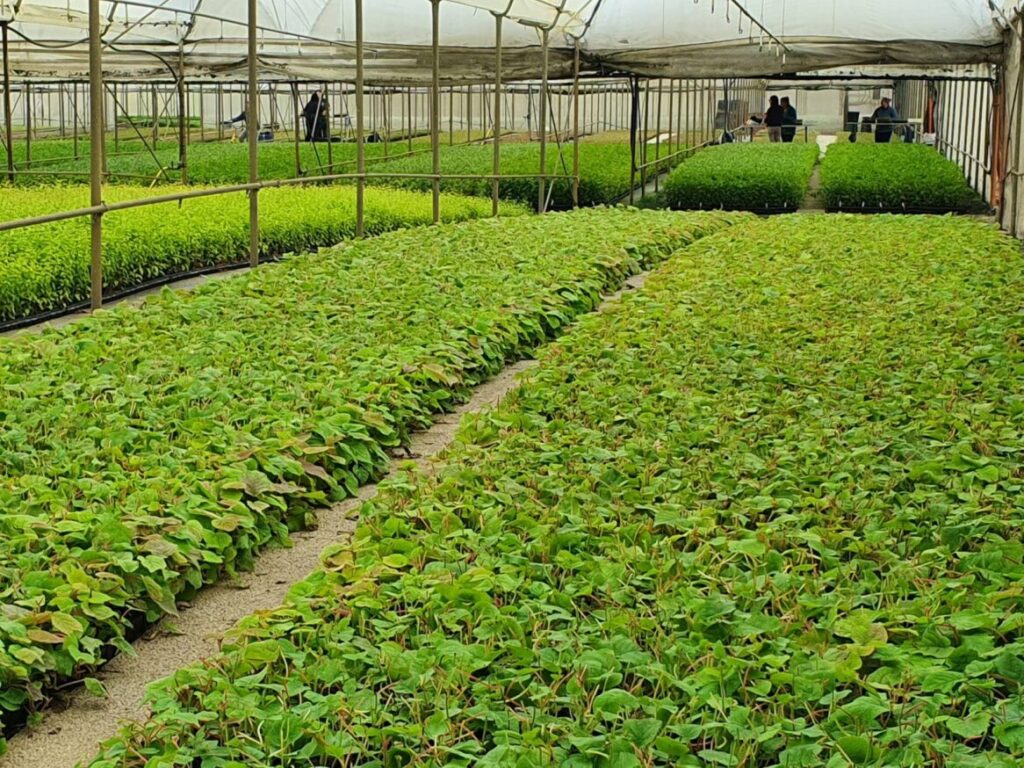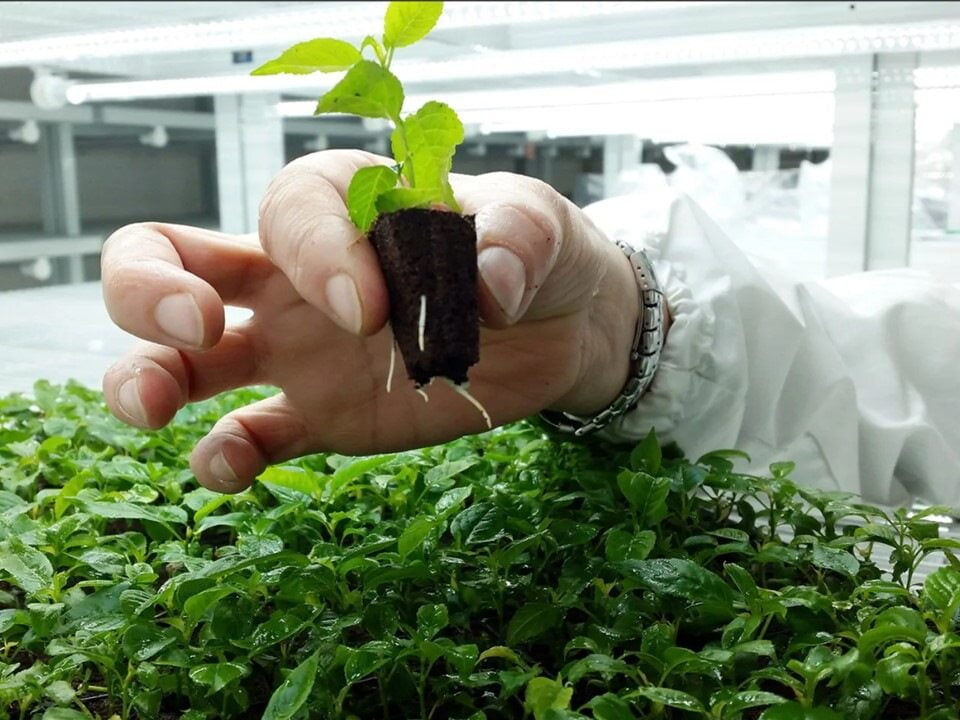Building on the success of the last edition, the Plant Nursery Area – plant nursery and varietal innovation exhibition will return to Macfrut 2024 (8-10 May, Rimini Expo Centre). The Italian fruit nursery industry is one of the key sectors that drive international production chains. The data recently provided by CIVI Italia, the interprofessional national consortium that gathers 90% of professionals nurseries and union of growers, are quite revealing: about 1,000 companies involved, 16,000 hectares involved surfaces of plant propagating material, an annual workforce of more than 80,000 people, a production value of more than €600 million, and a growing export share amounting to about 50% of production.
Italy is the European leader in fruit nurseries, with an annual production of 330 million strawberry plants, over 50 million fruit plants, and an equivalent number of rootstocks. It is followed by the Netherlands, which has a production of 250-300 million strawberries and berries, 40 million rootstocks, and 9 million fruit plants.
 “These numbers are even more remarkable when you consider that, at European and global levels, Italian excellence in the fruit nursery industry is evidenced by the fact that the Italian nursery industry can offer producers high quality and specific genetic and health requirements. – highlights Luigi Catalano, director of CIVI Italia – To raise these standards and promote the quality of its products in European and global markets, CIVI Italia – in agreement with the Italian Ministry of Agriculture, Food Sovereignty and Forests (MASAF) – has decided to adopt a new nursery certification system under the brand name QVI-Qualità Vivaistica Italia, with higher quality levels and better guarantees than the standard ones required by European certification systems”. As a result, Italy’s plant nursery production, which is QVI-certified, can now count on 12 million fruit plants, 250 million strawberry plants, and 30 million rootstocks.
“These numbers are even more remarkable when you consider that, at European and global levels, Italian excellence in the fruit nursery industry is evidenced by the fact that the Italian nursery industry can offer producers high quality and specific genetic and health requirements. – highlights Luigi Catalano, director of CIVI Italia – To raise these standards and promote the quality of its products in European and global markets, CIVI Italia – in agreement with the Italian Ministry of Agriculture, Food Sovereignty and Forests (MASAF) – has decided to adopt a new nursery certification system under the brand name QVI-Qualità Vivaistica Italia, with higher quality levels and better guarantees than the standard ones required by European certification systems”. As a result, Italy’s plant nursery production, which is QVI-certified, can now count on 12 million fruit plants, 250 million strawberry plants, and 30 million rootstocks.
The IRS – International Rootstocks Symposium will be the highlight of the conference programme of the Plant Nursery Area at Macfrut 2024: a two-day immersive event, jointly organised with SOI (Italian Society for Horticultural Science) and CIVI Italia, focusing on genetic innovations in rootstocks, consisting of four seminars providing insights and an overview of results from public and private research conducted as part of 25 international projects on apple, pear, stone fruit and citrus fruit trees.
“Because of the changes taking place globally, it was time to get back to discussing rootstocks and not just varieties,” explains Stefano Lugli, coordinator of the exhibition and convener of IRS along with Stefano La Malfa. “Today’s global trends show a need for genetic innovations and technologies.
But we should also start thinking about changing existing farming models to address the growing demand for sustainability in fruit production. On the other hand, we also need to bring about the changes required to deal with ongoing climate change. Given all this, researching genetic innovation in rootstocks is a more effective and forward-looking approach than racing frantically and uncontrollably to find new varieties. Ultimately, first and foremost, the problem must be solved from its roots, that is, rootstocks”.
The importance of roots, which are the heart and mind of every plant, will be the theme of the keynote address that Davide Neri will give at the International Rootstocks Symposium.
 As he explains, “decline issues are on the rise in several fruit-growing areas, causing substantial losses, as many plants are dying as a result of extreme weather caused by the climate crisis. The most concerning issues are pear decline, kiwifruit vine decline syndrome (KVDS) and citrus tree root pathogens, while apple, peach and cherry trees are also suffering significant damage”. He then adds, “against this background, increasingly common extreme weather events such as irregular rainfall distribution, heavy rainfall alternating with prolonged drought periods and sustained high summer temperatures, undermine the resilience of a system based on fragile and poorly developed rootstocks, causing plants to suffer. Consequently, any measures that can be taken to improve the system stem from the need to make use of genetic resources that are more tolerant to abiotic stresses and to find farming methods that can improve root health when soil fertility is poor and when extreme weather events occur. More specifically, to improve “the heart and mind” of our orchards, we need to know more about the architecture of root systems in relation to tree vigour and about biodiversity, which is necessary for roots to function in simplified cenoses, as well as how roots respond to crop intensification and the climate crisis”.
As he explains, “decline issues are on the rise in several fruit-growing areas, causing substantial losses, as many plants are dying as a result of extreme weather caused by the climate crisis. The most concerning issues are pear decline, kiwifruit vine decline syndrome (KVDS) and citrus tree root pathogens, while apple, peach and cherry trees are also suffering significant damage”. He then adds, “against this background, increasingly common extreme weather events such as irregular rainfall distribution, heavy rainfall alternating with prolonged drought periods and sustained high summer temperatures, undermine the resilience of a system based on fragile and poorly developed rootstocks, causing plants to suffer. Consequently, any measures that can be taken to improve the system stem from the need to make use of genetic resources that are more tolerant to abiotic stresses and to find farming methods that can improve root health when soil fertility is poor and when extreme weather events occur. More specifically, to improve “the heart and mind” of our orchards, we need to know more about the architecture of root systems in relation to tree vigour and about biodiversity, which is necessary for roots to function in simplified cenoses, as well as how roots respond to crop intensification and the climate crisis”.
The use of the site materials is free if there is a direct and open for search engines hyperlink to a specific publication of the East-Fruit.com website.




